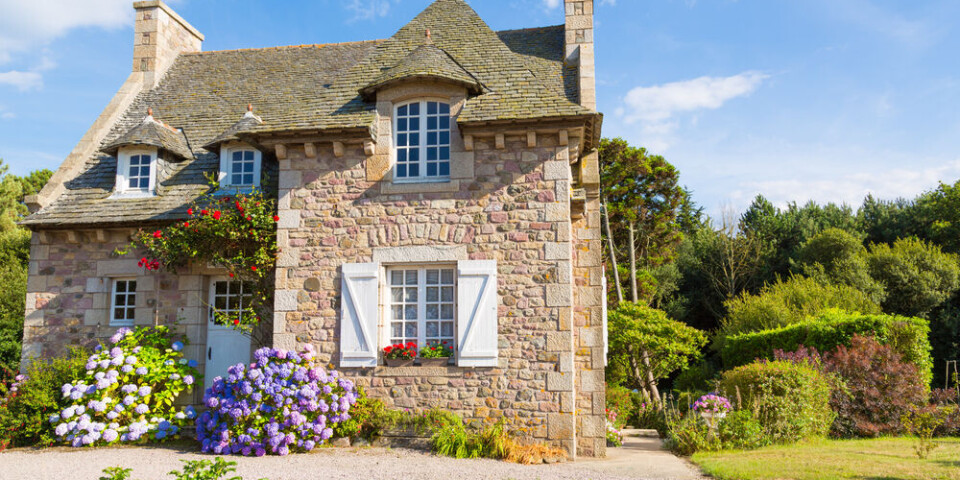-
Mandatory militarised civic service for youths in France aged 16-25 starts this autumn
Journée de défense et de citoyenneté is compulsory for many young people
-
Portuguese man o’ war sightings force French beach closures
Venomous species is often mistaken for jellyfish
-
French weekly weather forecast July 28 - August 1: unsettled north, high winds in south
A new low-pressure system is due to move in from the Atlantic, bringing wet and blustery conditions
Cancer deaths rising among under 65s in France, says specialist
The number of cancer cases nationally has doubled since 1990, with women slightly more affected than men

People under age 65 in France are increasingly dying from cancer, with the number of cancer cases diagnosed in people aged 20-65 also rising, a specialist has warned.
The median age for a cancer diagnosis is 67 for women and 68 for men, with ageing normally seen as one of the greatest risk factors for the condition.
However, in the past 30 years, increasing numbers of people aged 20-65 - under the usual ‘ageing’ threshold of 65 - have been diagnosed, warns Dr Eric Solary, professor of haematology (diseases of the blood and the organs that produce blood cells).
Dr Solary, who is also the former director of research at the leading French cancer research centre the Institut Gustave Roussy, told website Actu in an interview that there are “demonstrably more premature deaths from cancer” now than in previous decades.
He said that some cancers, especially “those in the digestive sphere…have risen very significantly over the last few decades”.
Individual factors vs environmental
The doctor explained that there are “individual factors” that can contribute to cancer “which depend on lifestyle, such as food, which can be excessive”. He also said that alcohol, and “toxic products in the environment” can also play a role, as can a “lack of exercise”.
Read more: Cancer expert alarmed by ignorance of risk factors in France
“Toxic products” can include those that people are exposed to at work, as well as microparticles from traffic pollution, products derived from petrol, and the exposure to now-banned materials such as asbestos (this has been banned in France since 1997).
Some people are also at a higher risk of cancer due to shift work, or having a working pattern that is not natural, such as flight attendants or hospital nurses.
Yet, most cancers are still not preventable, he said. “40% of cancers can be prevented, the remaining 60% are very difficult to prevent,” he added.
He said that cancer is “never [caused by] a single factor, it's a combination of things”.
“Of course you have to stop smoking,” he said. “But above all you have to bear in mind that there is a proportion of cancers that cannot be prevented, and we must not make people feel guilty about it.”
Lifestyle factors
Dr Solary’s warning comes after a study by health authority Santé publique France, released in August 2023, found that cancer cases have doubled in France since 1990.
It found that the increase had been more marked among women, where there has been a 104% increase compared to 98% for men.
Researchers also highlighted an increase in risk linked to behaviour and lifestyle, again with gender differences. While smoking, alcohol, excess weight, and a sedentary lifestyle are responsible for almost half of all female cancers, the impact is now less marked in men.
The incidence of cancers linked to smoking, in particular, has risen "considerably" for women, the report said, while falling for men.
The study looked at the 19 most common cancers and invasive tumours. Of these, prostate, breast, lung, and colorectal cancers remain the most prevalent in France, as in most European countries.
It was noted that "preventive strategies need to be stepped up among high-risk populations and age groups." Health authorities are aiming to reduce the number of preventable cancers by 60,000 cases a year by 2040.
Cancer is the main cause of death among men in France and the second leading cause among women, after cardiovascular disease.
Cancer screenings in France
In France there are routine screening campaigns for four of the most common types of cancer (breast, bowel, and cervical).
These are offered free to certain age groups (50-75 for breast and bowel; and for cervical, every three years between ages 25-29, and then every five years from age 30-65).
Prostate cancer screening is also available for men aged over 50, if your healthcare professional recommends it.
Related articles
France approves new treatment against endometrial cancer
Are you benefiting from the free cancer screening available in France?
How do French healthcare costs change for long-term illnesses?
























